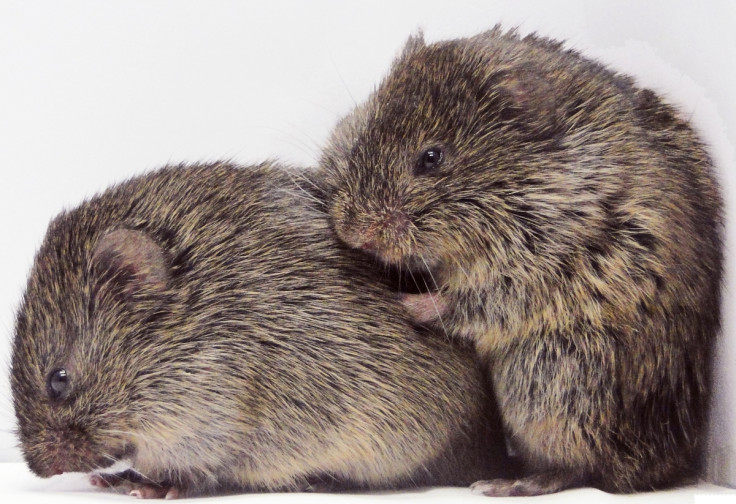Autism: Compassion shown by prairie voles leads to new oxytocin treatment

Prairie voles console their loved ones when they are feeling down, paving the way for new psychiatric disorder therapies, say researchers. The hormone oxytocin is triggered in the voles, just as in humans, to prove that detecting stress in others – and acting upon it – is not just a human trait.
A study found that whereas humans tend to hug or kiss each other when they need consoling, voles tend to groom each other in an empathetic manner. The scientists believe this discovery has human medical significance as treating psychiatric disorders, which affect the ability to understand other people's emotions, can now take a new direction with oxytocin.
"Many complex human traits have their roots in fundamental brain processes that are shared among many other species," said Larry Young, co-author of the study from Emory University. "We now have the opportunity to explore in detail the neural mechanisms underlying empathetic responses in a laboratory rodent with clear implications for humans."
The study has particular significance for autism spectrum disorder, and schizophrenia, as oxytocin can be used to improve social engagement. Researchers can now go one step further in analysing how different amounts of the hormone can reflect different levels of empathy.
The results of the study, published in Science, were found by exploring the effect of oxytocin on prairie voles that were stressed. The scientists observed the reactions of the voles to their counterparts in need of consoling.
It was discovered that when one of the voles was stressed, the other would instinctively wander over and engage in physical contact. Most of the time, that involved grooming, which the authors say clearly reduced the anxiety of the other rodent. However, when the scientists blocked the signalling of oxytocin – specifically in the anterior cingulate cortex – they no longer bothered trying to console any other voles. This result confirmed the role that oxytocin plays in nurturing of rodents.
Prairie voles are generally considered a monogamous species, forming life-long partnerships with other voles. The researchers also noted that voles were more sympathetic to their 'partners', as opposed to those they did not know as well.
"Scientists have been reluctant to attribute empathy to animals, often assuming selfish motives," said co-author Frans de Waal. "These explanations have never worked well for consolation behaviour, however, which is why this study is so important."
© Copyright IBTimes 2025. All rights reserved.






















